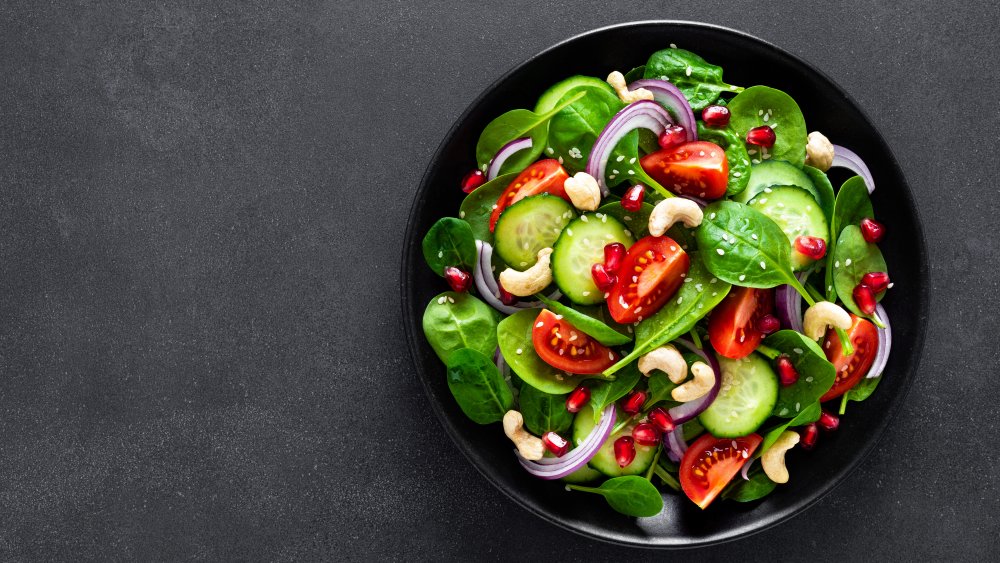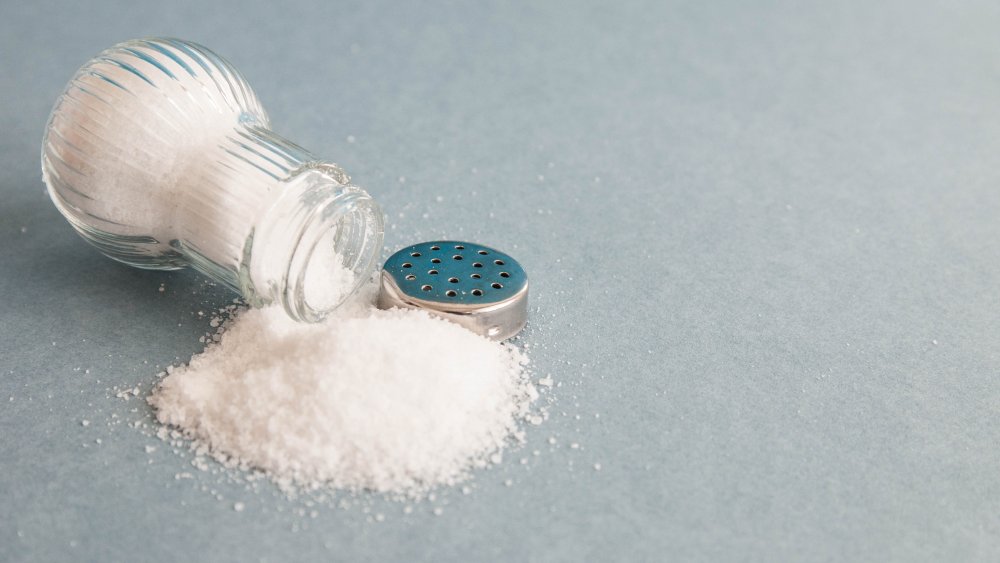The Trick To Making Restaurant Quality Salad
You may (or may not) be an amazing cook, but odds are good there are a few dishes a restaurant just whips up better than you can manage at home. And one of those menu items is ... drumroll, please ... a salad. Yes, a simple salad that should be so easy, but for some reason tastes a million times better when you order it at your favorite dinner or lunch spot.
One reason restaurant salads always seem to taste so good? Much of it has to do with the fact that chefs go where we, as home cooks, generally don't. As The Kitchn points out, a lot of things are happening in restaurant salads. Some combine greens, proteins, and dairy in a way we either hadn't considered or just didn't think would taste good together. And while it's important to be creative, there is another secret restaurant salads are hiding: They're filled with some unhealthy stuff! Chefs don't have as many qualms about using tons of dressing/olive oil/bacon grease/duck fat/cheese/nuts as we might, so as a result, their fresh greens end up bursting with flavor. And perhaps the biggest restaurant salad trick of all?
Make a restaurant quality salad using salt
That's right, it's sitting right next to your pepper shaker, per Mark Bittman, author of How to Cook Everything (via Medium). Sprinkling salt over your salad improves the taste of both the greens and the veggies. Consider: The word "salad" actually comes from the Latin word for salt (who knew?), and adding the seasoning to cabbage can make it more crisp by causing the leaves to release their water (Bittman's rule of thumb is 1 tablespoon of salt for 6 cups of cabbage). It also enhances the flavor of tomatoes, cucumbers, and radishes; gives sharp onions a more mild taste; and even helps prevent kale from being overly tough to chew.
There is just one caveat: Don't salt lettuce leaves too soon. "Avoid salting or dressing these in advance, or you'll end up with a watery mess. Do it right before serving — toss greens in a bowl with plenty of room so all the leaves are seasoned, as opposed to a salt garnish," Bittman suggests.

